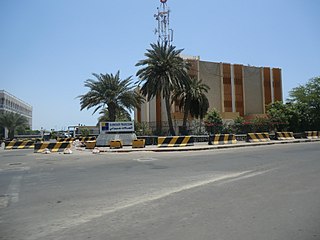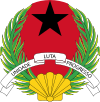RTP Internacional is the international television service of Rádio e Televisão de Portugal, the Portuguese public broadcaster. It shows a mix of programming from RTP's domestic channels, together with special Contacto programmes aimed at Portuguese migrant communities in Europe, Africa, South America and North America, as well as Macao and East Timor.
The media of Mali includes print, radio, television, and the Internet.

The media in Burkina Faso consists of print media and state-supported radio, news, and television stations, along with several private broadcasters with programs consisting of sports, music, cultural, or religious themes.
The Media in Angola is primarily controlled by Angola's dominant political party, the People's Movement for the Liberation of Angola (MPLA), led by José Eduardo dos Santos, the country's president.

Media in Burundi is controlled by the government.
Media of the Central Africa is controlled by the government.
Media in Chad is controlled by the government.

Media in Djibouti is controlled by the government.
The media of Gabon is primarily monitored by the Gabon government. Although the main newspapers are associated with the government, there are private broadcasters, and private weekly newspapers that are mostly controlled by opposition parties.
Newspapers published in Nigeria have a strong tradition of the principle of "publish and be damned" that dates back to the colonial era when founding fathers of the Nigerian press such as Nnamdi Azikiwe, Ernest Ikoli, Obafemi Awolowo and Lateef Jakande used their papers to fight for independence.
The media of Mauritania is undergoing a shift into a freer journalistic environment, while becoming increasingly open to private sector.
Media of the Republic of the Congo are severely restricted by many factors, including widespread illiteracy and economic underdevelopment.
Media in Togo includes radio, television, and online and print formats. The Agence Togolaise de Presse news agency began in 1975. The Union des Journalistes Independants du Togo press association is headquartered in Lomé.
Media of Tanzania includes print, radio, television, and the Internet. The "Tanzania Communications Regulatory Act" of 2003 created the Tanzania Communications Regulatory Authority, which oversees broadcast licensing. The Media Council of Tanzania began in 1995.
Media in Namibia includes radio, television, and online and print formats.






